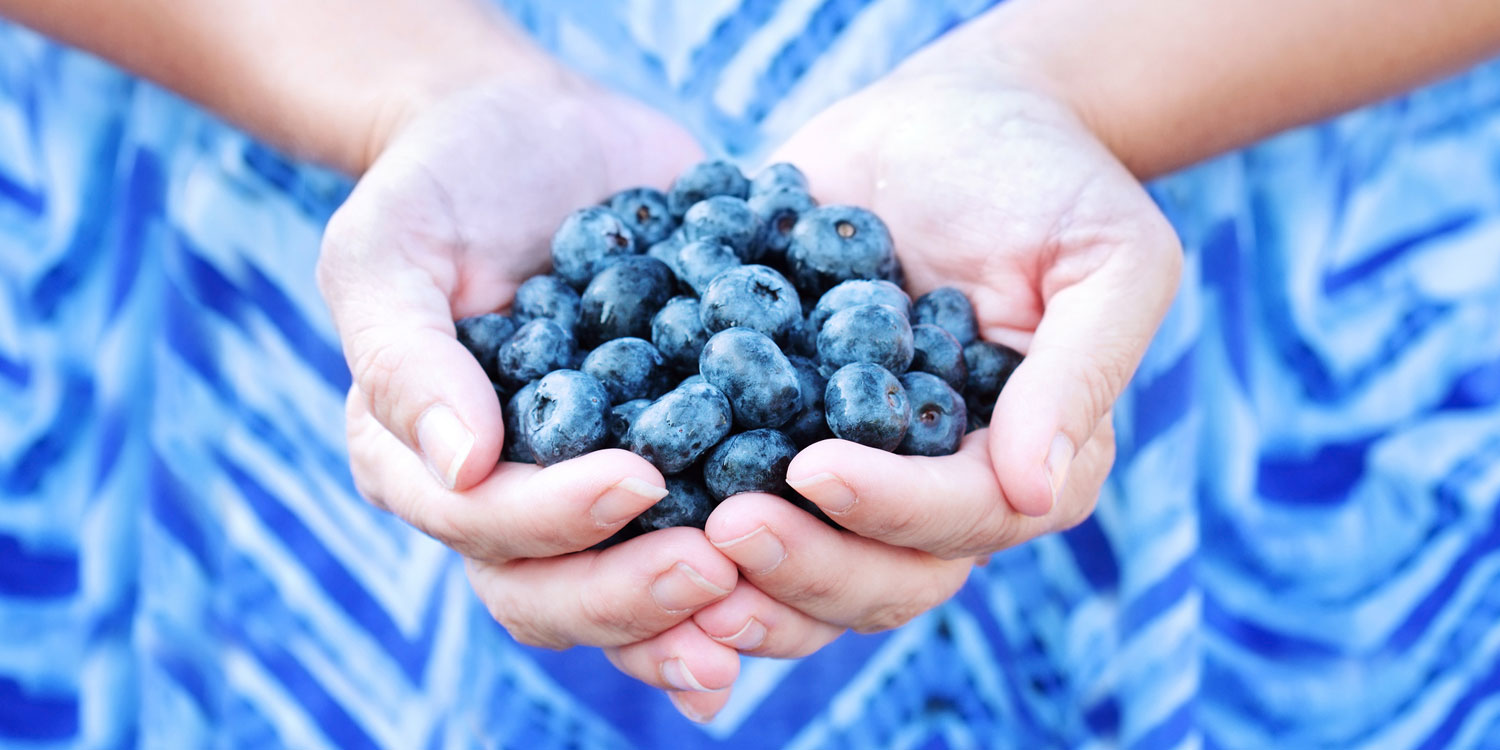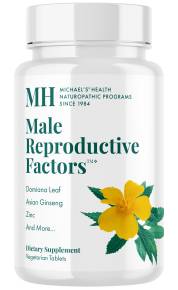Beneficial Berries and Exotic Fruits
Much like rust on your car, oxidation (AKA free-radical damage) can contribute to aging as well as diseases like atherosclerosis and cancer.
Antioxidants are important phytochemicals, found in brightly colored fruits and vegetables, that help protect your body from this “rusting” process.
Recently a number of exotic fruits have garnered attention, while both ancient and native produce continues to show healing potential in numerous scientific studies.
Here are just a few antioxidant-rich foods to consider:
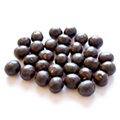 Açaí
Açaí
Açaí, (pronounced ah-sigh-ee), are berries from a palm tree native to the Amazon River region of Brazil. About the size of a blueberry, açaí contains almost 95 percent seeds, which are discarded, leaving the nutrient-rich skin. Unlike most fruit, açaí's calories come primarily from fat, including anti-inflammatory omega-9 fatty acids, and a little sugar. In addition to essential fats, these berries offer calcium, fiber, iron, vitamin A, and other antioxidants, including anthocyanins. Açaí contains 10 times more anthocyanins, in fact, than red wine, which has been touted in recent years for its health benefits.
Anthocyanins comprise only about 10 percent of the fruit's antioxidants, however. Açaí also offers proanthocyanidins, flavonoids, and phytosterols, the latter of which lower cholesterol, relieve symptoms of an enlarged prostate (benign prostatic hyperplasia), and help protect the immune system from stress. This fruit may even be a potential COX-2 inhibitor.
Combined with guarana syrup in a popular Brazilian drink, açaí reportedly improves sexual performance. Nicholas Perricone, MD, adds that the fruit is useful in beauty care. In the lab açaí’s antioxidants reduced cancer cell proliferation and enhanced programmed cell death in human leukemia cells.
In this country, acai is available in bottled smoothies, frozen pulp, juice, and powder. Heating appears to degrade some of the fruit's antioxidants, so look for flash-pasteurized açaí products that preserve the fruit's antioxidants and rich purple color.
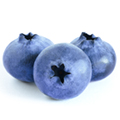 Blueberries
Blueberries
Native to eastern Asia and North America, blueberries have been used for everything from dyeing clothes to preventing scurvy. Ounce for ounce, wild blueberries are more nutrient dense, since they contain less water than highbush, cultivated species.
These berries are rich in a variety of phytochemicals, including anthocyanins, ellagic acid (which appears to inhibit tumor growth), and phenolic acid. Like their cousins (cranberries), blueberries contain antibacterial compounds that prevent the germs linked to urinary tract infections from attaching to the bladder wall. Both cultivated and wild berries have shown promise in inhibiting cancers, particularly androgen-sensitive prostate cancer. Scientists at several universities have found blueberries protect against cardiovascular disease, and animal research suggests these extracts are effective in Alzheimer’s disease. Their anti-inflammatory properties may be at least partly responsible for these effects.
Whether fresh or frozen, blueberries are rich in antioxidants and other nutrients. Select frozen berries that move freely in the bag, and don’t wash fresh berries until you’re ready to serve them.
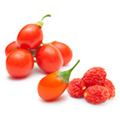 Goji
Goji
Also called wolfberry, goji are small, brightly colored (orange to light red) berries filled with seeds. Native to Mongolia and Tibet, goji has a 3,000-year history in Chinese and Eastern medicine, where it has been used to treat aches and pains, inflammation, nosebleeds, and skin irritation (lately it’s shown up in beauty care products). The Chinese recommend these berries for improved circulation, longevity, healthy liver function, enhanced sperm production, and more.
Cell studies suggest that goji inhibits leukemia and liver cancer cell spread, while animal research finds this fruit enhanced the effects of radiation therapy. Fruit extracts significantly reduce blood glucose, cholesterol, and triglyceride levels, while raising HDL (healthy) cholesterol levels in other experimental studies, making it potentially promising for both diabetes and heart disease.
Enjoy goji berries cooked, raw, juiced or brewed into a tea, or in a tincture. These berries taste a bit like cherries that were crossbred with cranberries; they’re increasingly available in natural products stores as food and supplements, as well as in personal care products.
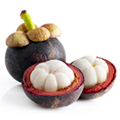 Mangosteen
Mangosteen
While its name may vary from country to country, this tropical fruit is highly esteemed around the world. [M1] Mangosteen has a variety of medicinal uses, too: the dried fruit helps fight diarrhea and dysentery. As an ointment, it relieves eczema and other skin problems. The root decoction may even help regulate menstrual periods.
Research supports its use as an anti-inflammatory, for acne treatment, and to remove oral plaque and fight gingivitis in natural mouthwash products. As an antibacterial agent, mangosteen has proven effective against 35 hospital isolates of methicillin-resistant Staphylococcus aureus, as well as antibiotic-resistant Entercocci pathogens.
Taken in conjunction with a healthy diet and exercise, mangosteen may also be effective for weight loss. And recent experimental research suggests it may be potentially useful in fighting cancer.
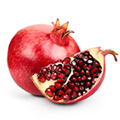 Pomegranate
Pomegranate
An ancient fruit, the pomegranate has been found in Ayurvedic medicine, Egyptian tombs, Greek legend, Biblical verses, and Christian art. The juice-encapsulated seeds are both delicious and nutritious, if messy to extract. Rich in antioxidants, essential fats, including conjugated fatty acids, fiber, and lignins, which contain phytoestrogens, pomegranate seeds are well worth picking out of this fruit.
It has been used to strengthen circulatory and digestive health, while in Ayurvedic medicine, pomegranate helps build up bone and cartilage. Said to support the bladder, blood, kidneys, and liver, this fruit has also been used to treat arthritis, diarrhea, intestinal parasites, mouth sores, and weak gums.
Scientific research has highlighted pomegranate’s potential in treating cancer, cardiovascular disease, and diabetes. In the beauty department, this fruit may slow skin aging. Two new pilot clinical studies suggest that pomegranate helps overweight people with increased waist size lose abdominal fat.
The seeds make wonderful additions to salads and other recipes. Also look tasty pomegranate juices, syrups, and teas, as well as supplements.
